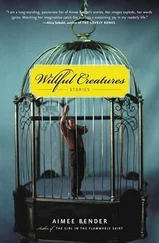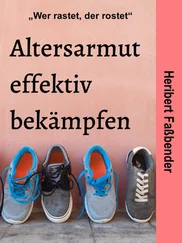Our story was the usual sad story of our current era.
We had not expected to land here. People ended up in New Brunswick, North Carolina, a glazed sprawl of about fifty thousand people, after they were fired or got divorced or wanted to end their lives somewhere warm. Many had a dazed quality, walking around, blinking, in the clear air that smelled, oddly, of a swamp. They were thinking: Is this where my life has led? Where do I go now? How long do I have to live, anyway?
I had spent seventeen years of my life at a desk at Hugo Resources, a shoe-manufacturing firm on East Thirty-fourth Street in Manhattan, as an associate vice president of marketing. I didn’t love my job, and I didn’t hate it, but it was what I walked out of the house to do each day, it helped fill our children’s stomachs, and it was my one small glory, my use. One day, the head of Human Resources appeared at the door. We thought he was coming to tell us more depressing news about our benefits. No more dental? No more contributions to the 401k? This time, the news was worse.
— Let me talk to you, he said, taking us each into a windowless office.
He offered me a donut. I took a glazed. I should have taken a fancier donut. I should have taken eight. I was, along with twenty others, fired, dismissed, gone. They didn’t want to pay us anymore.
Not pay us? Why not?
I had worked at my company for seventeen years. I had a title that sounded good if you said it fast. I took it all badly. Some of us stumbled out, sobbing. One woman threw up into a wastebasket. Others had a gift for looking on the bright side. They imagined more time with their children, pottery classes, walks in the park. They were brave! They were flexible!
I was not.
I wanted a job. I wanted my title. I wanted, let me add, the money. All of a sudden, our family income was halved. I actually felt dizzy when I understood this. I liked having money. Not much, but enough so that we could walk into Target and I didn’t have to cringe when the children asked for things. Not a new iPod, but a DVD. A pretty shirt. A watch. I wanted them to feel part of the community of consumers. I wanted to keep our apartment. I tried to calculate the numbers we needed each month in my head. I realized that every store would be a battle in this way, every withdrawal from the ATM a cause for shortness of breath.
— No offense, said the head of Human Resources, — but we have to let you go.
I WAS PACKING UP MY PERSONAL BELONGINGS, TRYING NOT TO CRY, wondering why Diane Moran across the hall was allowed to stay, what made her so special. I packed beside my coworker, Lionel Solang, who had been dismissed after fifteen years, and he was batting back the same tears. We were both forty years old and crying like babies. It seemed that someone had died, but really it was a part of us. We were standing in the employee lounge by the vending machine. Lionel Solang worked in — or had worked in — accounting. He strode around the office with that accountant’s crisp certainty, that pride in calculation, budgeting, and now he looked frightened, adrift, lost without anything to calculate. We stood in that small, sweaty room, the yellow vinyl couch where I had taken breaks, that luxury, a break. Now everything would be a break. The vending machine, stuffed to the gills with its scary, salty products, glowed.
— I gave everything my all, he said.
We were prone to clichés now.
— Me, too.
— What did I do wrong? Can you tell me? he said.
— I don’t know.
— You were good at this job. You were an integral part of this company.
— You were, too.
We looked at each other with the deep bond of people who had been similarly abandoned to the extravagant boredom of the world. The fluorescent lights burned. Lionel’s eyes were the green of an ocean. I noticed this.
— Really? I was?
— It’s all totally unfair.
— We’ll show them.
— Yeah. Someday.
— Now.
He looked at me, that sort of look.
— I’m scared.
We stood there, listening to that. Scared? How did that sum up anything? We had just been swiftly, absolutely erased.
— Don’t worry, he said. He touched my arm.
He touched my arm. What was this? I was married. I had imagined this, idly, to pass the hours, but not with Lionel, not with anyone real. I did not know what to do. My skin was cool, suddenly. He leaned forward. There were those eyes. The world was a boat, and I was falling off it. There was the light shock of his lips on mine, and then we were comforting each other, not just with words then, but with our mouths, our hands; there was that wave we both rode, that surf, those hands and arms I grabbed; we were not invisible, we were not. I was trying to unzip my skin and get rid of myself; he was, too.
— Come here, he said.
We went into one of the conference rooms. We locked the door.
WE DID NOT DO MUCH, BUT WE DID ENOUGH. AFTER WE FINISHED, I could tell he wanted to slink away and cry. That was the more compelling emotional choice at the moment, self-pity. I knew we would not do this again, and I did not want to. But groping Lionel was the most honest thing I could have done right then. Why do we believe that strangers tell us something more honest than our dearest ones?
With that goodbye, I took my personal belongings and left.
I TOLD MY HUSBAND ONLY ABOUT THE FIRST THING. THE FIRING. The other fact, my involvement with Lionel in the conference room, was a stupid, rotting secret. They say that people will do anything to avoid shame. At that moment in the lounge, I did not care about guilt; I wanted to avoid shame. When I fell asleep that night beside my husband, whom I loved, I did not relive the moment the Human Resources person told me I had to leave; I thought of Lionel’s lips on me in the lounge. They were, somehow, protection against a falling into a chasm that went on and on.
There was nothing then but numbness and résumés. Trying to figure out how fast we could keep from sinking. Could we dream money and see it show up in the checking account? How little could we spend, eat?
I tried to be good. I shopped at the cheap market. I tried to encourage everyone to eat cheap foods. Let’s all try lentil chili! We tried to appreciate the small things. Going on walks. Sunsets and the like. The decibel level in the house rose.
My husband’s hand touched my back.
There was nothing but numbness and résumés.
Then my husband’s company started behaving in a peculiar fashion. He was summoned into another windowless office. They offered to move him to this town, New Brunswick. He would have a contract for a year, and that was it. No more promises, his head guy said, as though my husband were a whiny five-year-old. We can offer a year.
IT WAS AT LEAST SOMETHING. WE LIVED IN A PECULIAR TOWN, A town that seemed to have arisen with the invention of Walmart, the housing developments resembling vinyl stage sets in which suburban mothers would run amok. The entire town fled into the local churches Sunday mornings, to soccer practice Saturday mornings. We chased them, trying to figure out where to go. We drove the wide, empty streets, we looked out the windows at the parking lots, we ate, slept, swept the floors, tried not to buy things, talked, ignored each other, waited. We tried to feel at home. We called people we met in the park, but they never called back. We sat in the apartment we were renting, alone, trying to keep the air-conditioning off because we didn’t want to pay the electric bill, sweating, mostly, lonely, arguing.
I sent my résumés out. Nothing. Nothing. The phone only rang with calls from telemarketers, who seemed a bit desperate, themselves.
— What is going to happen to us? I asked my husband. I had taken to asking him questions like this. I wanted him to be an authority on something. I wanted someone to be.
Читать дальше












